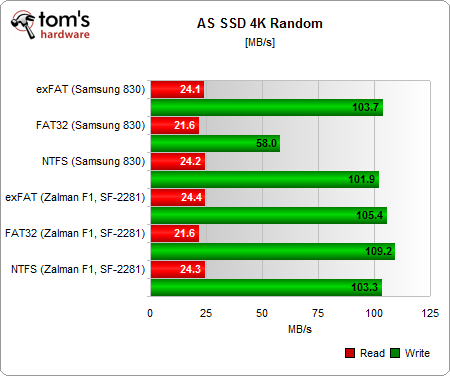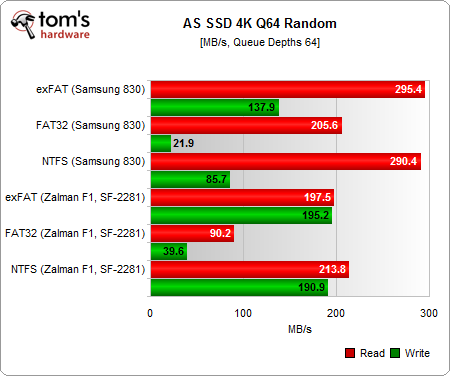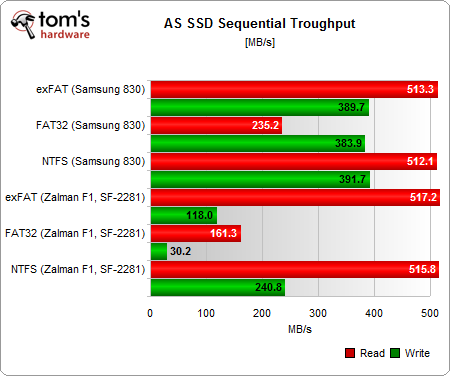Does Your SSD's File System Affect Performance?
SSDs serve up data quickly, and prices are low enough that some enthusiasts may want SSDs for data storage. Does the file system you use matter? We compare performance between FAT32, NTFS, and the newer exFAT file systems on two popular SSD architectures.
AS SSD: Random And Sequential Throughput
Random 4 KB read and write operations with an unsaturated queue (a queue depth of one) represent a fairly typical load scenario.
Writes are faster, as the drive can quickly find a free sector to write to, while the read operations are specific to a given sector. Writes to the Samsung 830 are significantly slower using FAT32, though the Zalman F1 drive seems to suggest this isn't an issue inherent to the file system itself.
A very large queue depth of 64 pending commands allows the drives to optimize read operations, leading to much improved throughput.
On exFAT and NTFS, this has a very positive impact, while the drives working with FAT32 suffer enormous performance hits. However, a queue depth of 64 is really only theoretical, since desktop systems hardly ever experience queues depths in excess of four.
Sequential throughput helps illustrate FAT32's lagging performance in a more realistic situation, and its throughput is severely limited, especially on the Zalman SSD. Since storage drives tend to be used for holding larger files (like the aforementioned videos), this metric is ostensibly the most relevant to us.
Get Tom's Hardware's best news and in-depth reviews, straight to your inbox.
Current page: AS SSD: Random And Sequential Throughput
Prev Page Test Setup And Benchmarks Next Page AS SSD: Access Time, Copy Benchmark, And Overall Score
Patrick Schmid was the editor-in-chief for Tom's Hardware from 2005 to 2006. He wrote numerous articles on a wide range of hardware topics, including storage, CPUs, and system builds.


